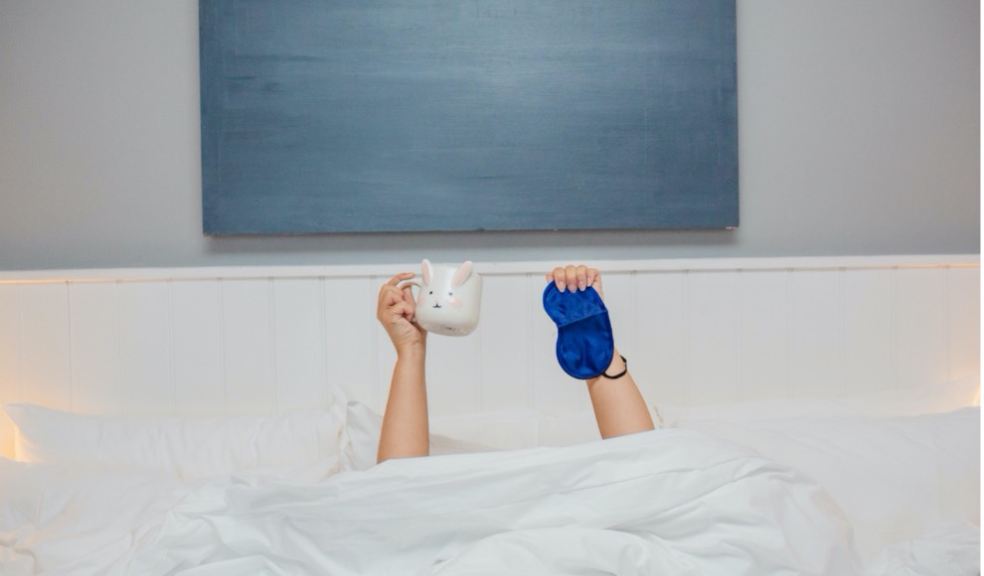
What is the Secret to Good Quality Sleep and Why is Sleep Tourism a Growing Trend in 2024?
One of the biggest travel trends we saw in 2023 and which shows no signs of abating in 2024 is sleep tourism, the act of travelling to get a better night’s sleep. What started in 2022, because the global pandemic created a seismic shift that made us all acutely more aware of the importance of sleep for our health and wellbeing, this trend has continued to gather pace.
Medical professionals and wellbeing experts all agree that good sleep is the foundation for a healthy lifestyle and correlates to a healthy body weight, improved mental health, better emotional regulation, stronger immune system, improved attention and concentration, reduced stress levels and a healthy heart.
When we suffer from a lack of sleep this can cause or contribute to a number of chronic health issues such as anxiety and depression, mood swings, obesity, diabetes, hypertension, stroke and heart conditions.
Brits are Struggling to Sleep Well
And yet, recent figures from The Sleep Charity, an organisation that provides advice and support to empower the nation to sleep better, show that 40% of adults have a sleep issue at any given time. It’s no wonder that many of us are booking holidays to catch up on sleep.
Eliot Seabourn-Wren is co-owner of The Carlton Hotel in Ilfracombe, a four-star hotel on the North Devon coast. “Sleep is a core element of the hotel experience and people are increasingly looking for their getaways to help restore them as they escape the hustle and grind of everyday life,” says Eliot.
“We regularly hear from our guests that they are looking to relax, unwind and enjoy a good night’s sleep. And when they do, this has a positive effect on their overall holiday experience, so they leave feeling much happier and more satisfied because they’ve had the energy to really enjoy their stay.”
Invest in a Good Quality Mattress
Every March sees the National Bed Federation celebrate Bed Month, a campaign that promotes the health benefits of buying a new bed. A large part of the hotel sleep experience is obviously down to the bed and the mattress which must provide that luxury experience that hotel guests maybe don’t get at home. Michael Rebeiro co-owns the Carlton with Eliot and understands all too well how important the bed and mattress is when it comes to a quality sleep experience.
“A good bed and mattress are worth their weight in gold,” says Michael. “We spend on average seven hours a night sleeping on our mattresses. That equates to roughly one third of our lives. I always find it baffling that people will spend more money on their phone which will last two years if they are lucky, than they will on a good bed and mattress that support their physical health and mental wellbeing.”
Michael continues: “We often get asked by our guests where our mattresses are from as they have had such a great sleep whilst staying here. But it’s about more than just the mattress. There are lots of other considerations that we make here to ensure our guests wake up feeling refreshed and energised.”
Focus on Temperature, Lighting and Comfort
Along with the high-quality beds and luxury linen, the Carlton boasts double-glazed windows which open to allow in fresh sea air or close to help make the rooms more soundproof. There is also controlled lighting and blackout curtains in each room.
“Years of experience in the hotel industry have taught us that temperature, lighting and comfort are key when it comes to creating a quality sleep environment,” says Eliot explaining that these are the things that they prioritise getting right at The Carlton.
Dress Appropriately
What we wear to bed is obviously important when it comes to both temperature and comfort. Natalie Estlick is the founder of Sister Organics and makes beautiful pyjamas from organic and sustainable fabrics. She says, “I would always recommend organic cotton for sleepwear. As a natural fibre, cotton helps regulate your body temperature, keeping you cool and comfortable. It absorbs moisture and releases it efficiently so your body remains at a balanced temperature throughout the night. Organic cotton is usually softer than conventional cotton too, so it is a dreamy combination.”
Whilst temperature, light and comfort are vital for preparing your physical environment for a good night’s sleep, there are also mental preparations that we can make, whether we’re off on a hotel sleep retreat or simply sleeping at home in our own bed.
Clear your Mind
Veronique Mertes is a Solution-Focused Hypnotherapist and helps people to overcome sleep problems and restore good sleep patterns. She believes that relieving the mind is key to sleeping soundly.
“Our bodies and minds are like an electric car,” she says. “They can function extremely well if they are well charged. After a while they run out of ‘juice’ and won’t get you very far unless you take care of them. Sleep is that obvious recharging tool. When we sleep, we not only rest, but we also process, repair, and in the case of our children, grow!”
She continues, “Our workloads, family duties, financial situations, relationships, social connections and lack of free time are overwhelming us. Our batteries are no longer being recharged. We are becoming more and more like racing cars, our engines running hot all the time.
“Interrupted sleep can be one of the immediate consequences of this constant overload. To repair our system and allow sleep to do its job, we need to downsize. The aim is to alleviate the load your mind is carrying to make space for efficiency and ease, especially as our mind does not differentiate between physical and emotional stress.”
Write Down Your Worries
This is something that Matt Young also agrees with. Matt is known as The Journalling Guy and he is on a mission to teach people how journaling can have a positive affect on your mental health and physical wellbeing. He believes that journalling can be a really good tool to help us prepare better for sleep.
“To help your mind release the day’s stresses and get ready for a good night’s sleep, you should write in a Journal just before going to bed,” says Matt.
“Journaling can reduce worry and stress, increases sleep time, and sleep quality too. Worrying about stresses in your head causes it to become cluttered with bad thoughts and anxiety. Writing in a journal before going to bed will help you relax and leave your mind feeling at ease. This can assist your mind in shutting down quickly and falling into REM sleep,” he explains.
He also suggests setting aside 15 minutes each night for writing about a recent positive experience. He says: “Writing positively will put your brain in the right frame of mind to relax and even dream about the positive experience too.”
Create a Bedtime Ritual
It is obvious that we need to plan in wind down time to allow us to prepare for bedtime. Chloe Osborn is the founder of Moksa and makes natural skin care products and candles designed to help you focus on self-care and take time out from the craziness of the world.
She says “Having a regular bedtime routine or ritual makes for a restful night’s sleep which can massively help with low mood, anxiety and depression. Switching off from any devices at least an hour before bed is a great start as the blue light essentially tricks the brain into thinking it’s still daytime, stopping the body from producing melatonin - the sleep-inducing hormone.”
Instead, she says we should light candles or salt lamps that emit minimal glow. “Reading, journaling and meditating before bed are great ways to wind down. Taking a bit of time for self-care is also incredibly relaxing. A gentle face massage with a natural face oil that contains essential oils is a beautiful way to relax and treat yourself. Then using a natural pillow spray containing lavender to spritz your space right before your head hits the pillow to finish.”
Whether you are trying to get better sleep at home or feel the need to head off to a hotel on a sleep retreat, these tips will hopefully help you to create a better bedtime ritual that leads to restful and restorative sleep.













